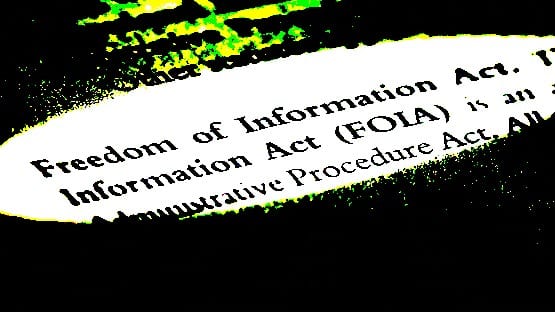
The retired judge who in January ordered Augusta County to turn over a copy of the recording of an illegally-held Board of Supervisors meeting has, curiously, now reversed course.
Go figure, right.
That a local judge is siding with local government to keep what was said behind closed doors by county leaders about the resignation of one of their own from seeing the light of day.
You didn’t expect this to happen.
Because you remembered something from your eighth-grade civics class about there being something called separation of powers that makes it sound like the government isn’t in fact a monolith.
Jokes on you for not understanding that the government can and does use the government to keep bad things said by people in government from getting out because it might make them look bad.
Separation of powers.
Only in eighth-grade civics.
Judge Thomas J. Wilson IV rather creatively used a routine scheduled Feb. 28 hearing on attorneys’ fees for the plaintiff in the Freedom of Information Act case, Breaking Through Media, to allow the county to relitigate his Jan. 11 finding that the Board of Supervisors had improperly gone into closed session to discuss the March 20, 2023, resignation of Steven Morelli from his South River seat on the Board.
In a new ruling dated March 15, and made public on Wednesday, Wilson noted that he reviewed a digital copy of the March 20 closed session, and after doing so, he is now “of the opinion that the subject matter of the audio recording contains information and statements that at times specifically identified county employees, and contained information and statements that would lead to a high probability of identification of county employees who are entitled to the privacy protection this exemption provides them.”
The county itself hasn’t argued that point, but, so much for court procedure.
Wilson here appears to be doing the county a favor by ex post facto correcting for the Board of Supervisors what, two months ago, he ruled was a flawed motion that the Board had used to go into closed session that was in violation of the state’s FOIA law, and as such led him to compel the county to turn over a recording of the closed session.
The motion read and adopted by the Augusta County Board of Supervisors to go into closed session at its March 20, 2023, meeting was of the “general reference” variety, which Wilson had ruled had run afoul of a 2020 Virginia Supreme Court decision in Cole v. Smyth County Board of Supervisors.
In that case, the high court observed that the state’s FOIA law holds that “general reference to … the subject matter of the closed meeting shall not be sufficient,” and that “this prohibition against ‘general reference[s]’ is an implicit requirement that a motion effectively identify the subject matter to be discussed in the closed session. The Motions’ broad mention of ‘actual or probable litigation’ does not do so.”
That was what Wilson had ruled on in January – that the Board of Supervisors, by simply informing the public that it was going into closed session under FOIA’s personnel exemption to discuss “Board of Supervisors,” had lacked the necessary specificity required to be able to do so under state law.
That specificity, incidentally, is required because state lawmakers recognize that the public has a right to know what its elected leaders are doing even when they go behind closed doors.
Except, apparently, in Augusta County.
Because the motion read and adopted by the Augusta County Board of Supervisors to go into closed session at its March 20, 2023, meeting was of the “general reference” variety, Wilson had ruled in January that it was “too cryptic, is merely a general reference to the subject matter, and does not contain the particularity I believe the statute requires.”
Wilson, in his March 15 order, now dismisses his earlier finding that the county had been in violation of the FOIA requirement, minimizing the blatant abuse of the Cole standard set forth by the Virginia Supreme Court as a “technical mistake/violation” that does not change the “proper personnel closed session into one where the contents get provided to the Petitioners.”
“That would violate the expectation of privacy that the subject personnel were, and are, entitled to,” Wilson wrote.
Not only did Wilson backtrack on this important point in his new ruling, but he is even backtracking on the strong wording of his original order, to the point of denying that what he now describes as an “opinion letter” was meant to be “an order for production” – i.e. an order that a copy of the recording be handed over.
The wording of what Wilson is now calling an “opinion letter” cast itself as anything but a mere opinion.
“The County will be ordered to provide the tape or recording of the portion of the March 20 closed session involving Morelli to Petitioners. There is no need for an injunction – I am ordering compliance, which is sufficient,” Wilson wrote in his Jan. 11 court order.










